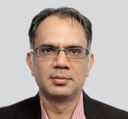Caring For A Person After Brain Surgery!
It takes some time for a patient to return to normal life after a brain surgery. The patient must take extra rest for the healing to occur. The time for the recovery after brain surgery differs from one individual to another and mainly depends on the location of the surgery in the brain, the procedure used, overall health of the patient and areas of the brain affected by the surgery. The length of the stay in the hospital also depends on factors such as type of surgery performed, and if the patient requires any further treatment.
Care after Brain Surgery
The brain surgery is carried out by a neurosurgeon who is specially trained in critical care. Here comprehensive care is provided to the patients. After the surgery, it is only after the assessment by the doctors that the patient can see his or her family members. Care of the patient after brain surgery is done in the neurosurgery nursing unit. There are chances of occurrence of some problems with regards to the thoughts, behavior and feelings of the patient after the surgery. For this reason it is important to provide assistance to the patients for recovering. They are given rehabilitation therapy for the same.
Treatment Provided by Rehabilitation Specialist
The rehabilitation specialists mainly include the speech language pathologist, occupational therapist and the physical therapist. The main role of the occupational therapists is to assess the ability of the patient in performing day to day activities such as using the toilet, getting dressed and having a bath. The therapists also check the thinking skills and vision of the patient to determine whether the patient can return to work again and be able to perform other challenging tasks.
In most cases, a brain surgery affects speech and the problem can be evaluated by the speech language pathologists. It can also affect the thinking power and language. The pathologists even evaluate the patient for disorders in swallowing food.
Right-after Care
The right-after care is necessary for brain surgery and a lot of fluids and nutrition are provided through intravenous infusions to the body. It is important for patients to sleep with their head raised to restrict the brain swelling. The patient should avoid coughing hard as such actions can lead to intracerebral pressure. It is essential to take proper rest. It is also important to try to move at frequent intervals for smooth circulation of blood and avoid stiffening of limbs.
It is important for patients to stay away from rigorous activities. They should resume any sports activity only after proper recovery. It is recommended not to go for swimming for at least one year mainly because of the risk of seizures. After the invasive procedures it is advisable not to return to full time work or to start working fewer hours.
In case the patient has a concern or query, he or she can always consult a neurosurgeon & get answers to the questions!



+1.svg)
